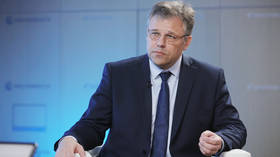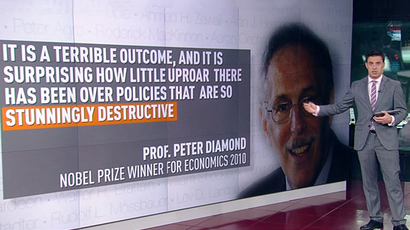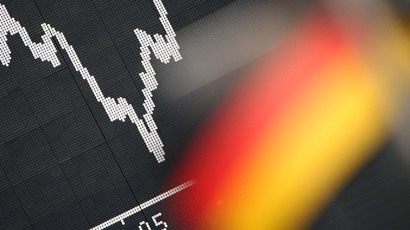German economy ‘losing momentum’, GDP drops 0.2%
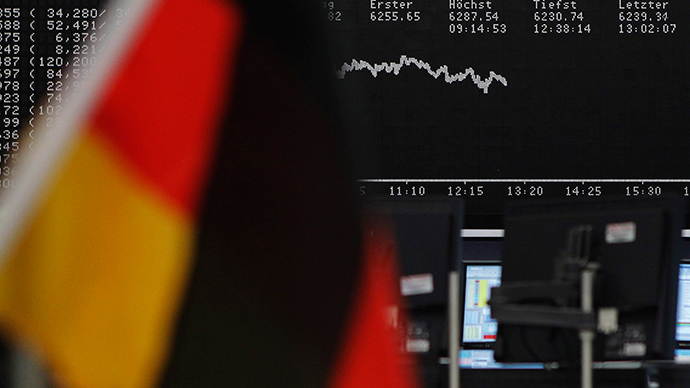
Growth in Germany contracted 0.2 percent in the second quarter, the first fall in over a year, stoking worries Europe’s biggest economy is slowing down, as the Ukraine crisis and weaker trade drag down what was once a glowing model for the rest of Europe.
The seasonally-adjusted gross domestic product (GDP) from April to June was confirmed Monday by Germany's Federal Statistics Office to have dropped twice as much as forecast, which it said shows the economy is “losing momentum.” Annual growth predictions have been slashed from 3 percent to 1.5 percent.
The initial second quarter figures were released August 14. If growth contracts again in the third quarter, Germany will enter a technical recession. In the first quarter Germany saw 0.7 percent growth.
Germany has spearheaded the continent’s austerity program, with severe spending cuts that may be further stunting the EU’s sputtering economy.
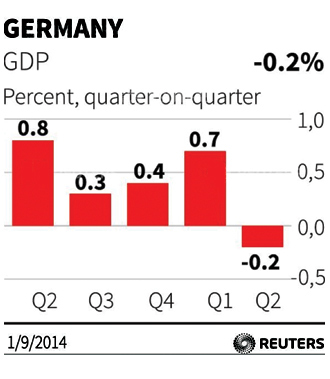
Germany is facing pressure from its European neighbors to spend more to help kick start the euro economy, namely using investment programs. Chancellor Merkel has said Germany will only agree to spend part of its €16.1 billion surplus if growth at home is healthy enough.
At $1.5 trillion, Germany accounts for nearly 30 percent of the gross domestic product of the entire 18-member eurozone. In general the eurozone’s economy has been on the rocks- with the largest economies like France and Italy failing to post growth, and mass unemployment in the “south”- namely Spain, Portugal, and Greece.
READ MORE: Nobel prize winners: Eurozone recovery is 'dismal failure'
Much of the economic shortfall in the second quarter is attributed to the ongoing Ukraine crisis and sectoral sanctions against Russia. Six thousand two hundred German companies do business with Russia.
Germany’s export-driven economy has slowed down as a result of soured relations with Russia. In 2013 German’s total exports reached €1.1 trillion, and it risks losing up to 25 percent in 2014.
In 2013, Germany was the biggest capital exporter globally, with a trade surplus of $270 billion.
The factory PMI for Germany, Russia's biggest trade partner in the European Union, fell to an 11-month low, and in the eurozone, it fell to a 13-month low.
Economic data for Germany has, as of late, been a mixed bag, with both business and consumers wary of the financial climate. However, compared to the same time period last year, 0.8 percent more people are employed.








